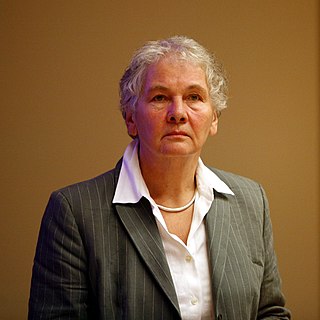A Quote by Marc Bekoff
All animals, including humans, have a right to lives of dignity and respect, without forced intrusions.
Related Quotes
When humans act like animals, they become the most dangerous of animals to themselves and other humans, and this is because of another critical difference between humans and animals: Whereas animals are usually restrained by the limits of physical appetites, humans have mental appetites that can be far more gross and capacious than physical ones. Only humans squander and hoard, murder and pillage because of notions.
Humans — who enslave, castrate, experiment on, and fillet other animals — have had an understandable penchant for pretending animals do not feel pain. A sharp distinction between humans and 'animals' is essential if we are to bend them to our will, make them work for us, wear them, eat them — without any disquieting tinges of guilt or regret. It is unseemly of us, who often behave so unfeelingly toward other animals, to contend that only humans can suffer. The behavior of other animals renders such pretensions specious. They are just too much like us.
It is an indication of the extent to which people are now isolated from the animals they eat that children brought up on storybooks that lead them to think of a farm as a place where animals wander around freely in idyllic conditions might be able to live out their entire lives without ever being forced to revise this rosy image.
Once we ask why it should be that all human beings - including infants, the intellectually disabled, criminal psychopaths, Hitler, Stalin, and the rest - have some kind of dignity or worth that no elephant, pig, or chimpanzee can ever achieve, we see that this question is as difficult to answer as our original request for some relevant fact that justifies the inequality of humans and other animals.
I don't hold animals superior or even equal to humans. The whole case for behaving decently to animals rests on the fact that we are the superior species. We are the species uniquely capable of imagination, rationality, and moral choice - and that is precisely why we are under an obligation to recognize and respect the rights of animals.
Humans and other animals experience love and fear, and form deep emotional bonds with cherished companions. We mourn when a close friend dies, and so do other animals, as Barbara King's poignant book illustrates in compelling detail. How Animals Grieve helps us to connect and to better understand the complex social lives of other animals and of ourselves.
I hope what we can talk about is something that happened, you know, within the last 25 years, the things that are relevant to our country right here, right now, including all people, fighting for the rights of working people, fighting for the rights of people struggling for dignity and respect in our society.
The elimination of horrible disease, the increase of the quality of lives (for humans and for animals) achieved through research using animals is so incalculably great that the argument of these critics, systematically pursued, establishes not their conclusion but its reverse: to refrain from using animals in biomedical research is, on utilitarian grounds, morally wrong.
































